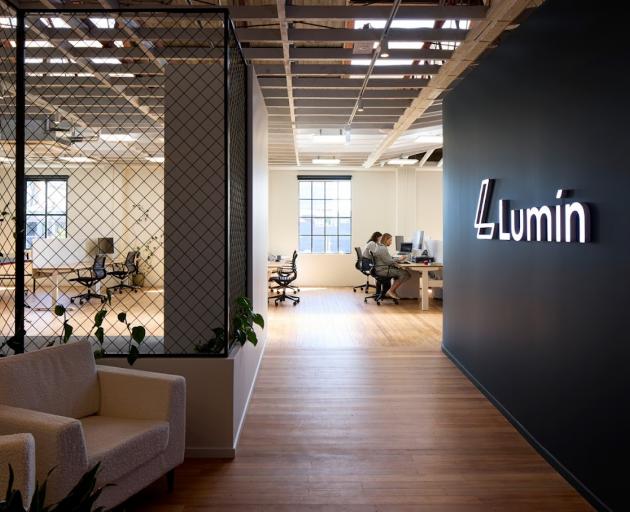
Founder and chief executive Max Ferguson is confident the goal is within reach of the platform after going through a large growth phase.
Initially a cloud-based PDF editor, the business has expanded to take on artificial intelligence (AI) and e-signature services.
This has brought in international customers such as Netflix, Airbnb and Uber as well as F&M Bank in the United States and domestic clients including Renti and Bayleys.
Lumin now employs about 100 staff with software building teams based also in Auckland and around the world including Vietnam, the Philippines, United States and Europe.
Mr Ferguson said the goal was to scale up the business further.
‘‘Our vision is to help our customers enjoy working with over a billion documents a year. So we are really focused on how we can improve PDF or replace PDF and help people enjoy documents. We might do 100 million documents a year and we are not signing all of those so some of them are just annotations and that sort of thing so we really want to get to the volume where Lumin is a massive part of how people do work and we are providing solutions for PDF at a world scale.’’
He said reaching the 100 million user milestone was a big achievement by the entire team.
Lumin sells its software on a per document model to business customers and makes it available free to users such as schools.
Mr Ferguson said Lumin had always re-invested profits back into products to continually improve year after year after being ‘‘bootstrapped’’ from the start.
He said they avoided spending large amounts of money to ‘‘just create a buzz’’.
While studying for a structural engineering degree at the University of Canterbury he was exposed to modern technology at a stage when cloud storage was quickly growing.
Entering the workplace in 2014 during the Christchurch rebuild, he realised there were many barriers when it came to working on documents and collaborating digitally.
‘‘We were printing scanned documents and would have to either manually take them back to the designers or would scan and email them over and I just found things were getting lost in that process. There was a huge amount of friction just getting information from a building plan back to the people who designed it and getting updates from them and realised this was something I could work on to find a solution especially with all the change that was happening in the tech sector at the time.’’
Modern users have found new and innovative ways to use Lumin products, but core services include the signing of digital documents such as lease documents and HR contracts.
Another use is a PDF collaborative tool so architects, construction businesses, lawyers and other professionals can load feedback and make changes on documents stored in the cloud.
Mr Ferguson said they had more lately incorporated AI into many Lumin products such as document summaries for clients.
‘‘We also have Vision AI so we allow forms to be automatically created. So if you upload a document with no form fields on it we can place the form fields in there for you automatically. But our focus has really been to create products which are helpful for the end user rather than just jam a whole lot of features into the products.’’
He said the company had tried to work towards a steady growth rate rather than progressing too quickly.
However, a million people were using the platform within the first month of the first version’s release.
This accelerated after the Lumin team completely rebuilt the product suite ‘‘from the ground up’’ in 2019.
Mr Ferguson said about 40 million people were continuing to use the product during the rebuild and they had to maintain workflows.
‘‘It was probably one of the most stressful decisions that I had ever made to do that, but we rebuilt everything and got it working really well and in the last five years we saw this really explosive growth.’’

He said the likes of Airbnb, Netflix and Uber came to them as their product became better known.
‘‘We have a really great integration with Google Drive and so those companies are presumably using Google Drive and the Google Workplace suite and Lumin really works well with those products. Teams at those companies reached out to us and purchased Lumin ... and then as we see people get to use and enjoy the product it will grow out to more teams using it in the company.’’
Lumin team members often go out to Google Next conference in the US each year and other global events to meet customers and understand global markets.
Mr Ferguson said he saw great potential to build a tech company in Christchurch from the beginning.
He said Canterbury and Lincoln universities were generating - with other educational providers - skilled and ambitious potential employees.
‘‘The tech sector is still developing here so we have got a few big players, but it’s still relatively new so I was quite excited to build the company’s headquarters here and give those people who are graduating an opportunity to come and work at a world class company.’’
He would like to see the city become a larger tech area.
So far the temptation to bring in outside capital has been resisted.
‘‘I wouldn’t rule it out and there’s potential there in the future. One thing I do find is that we try to think long term so we are trying to figure out how we improve agreements and collaboration long term and what’s coming after PDF which is really on a 10 year or longer time horizon. Often venture capital is looking for quick wins and if we were going out to raise capital we would really want to do it to make a big impact and a long term change rather than really focusing on short term growth which is important, but we are all about the long term vision.’’
He said many new products were coming out this year and they were working hard to figure out the next step for agreements and contracts and ways to build digital trust.
AI was growing quickly and it was difficult to know what could be trusted and whether an agreement was being drafted by a company or AI.
Lumin had plans to carry out product development such as identity verification to create trust solutions particularly for signing documents, he said.
He said using AI to achieve this could be part of the future.













